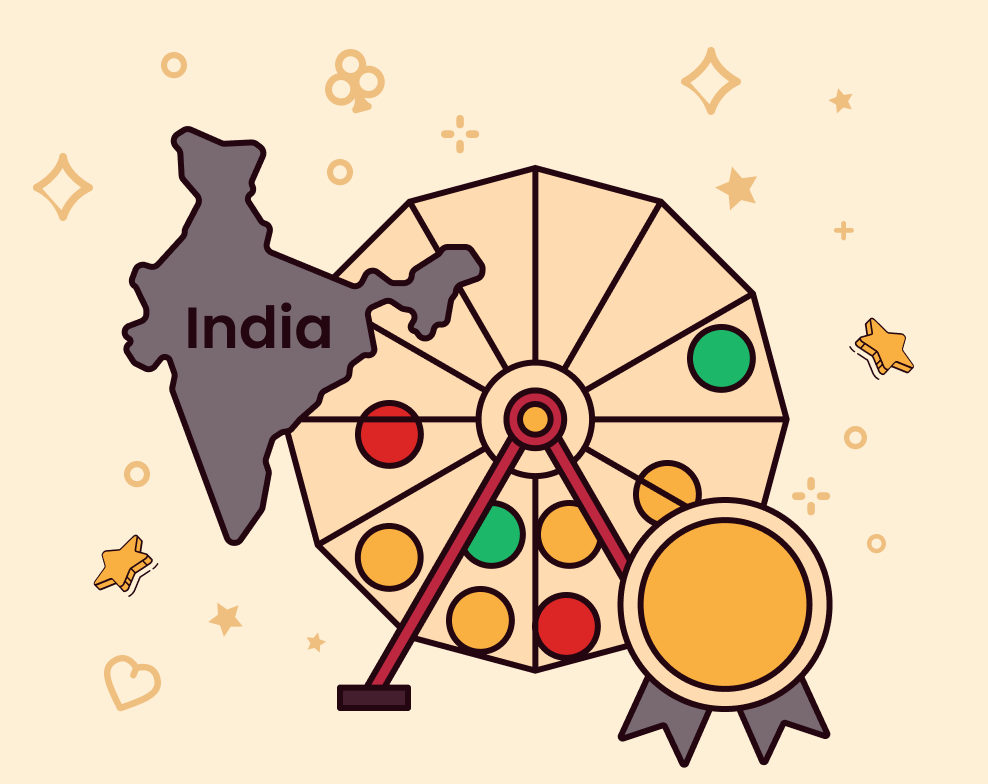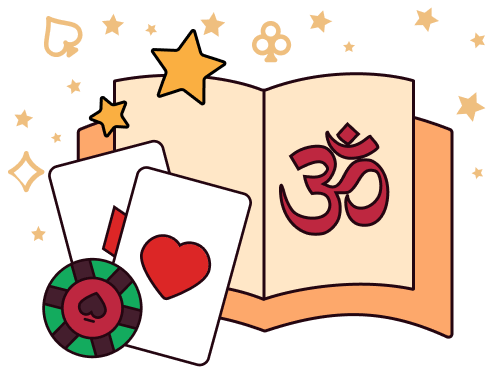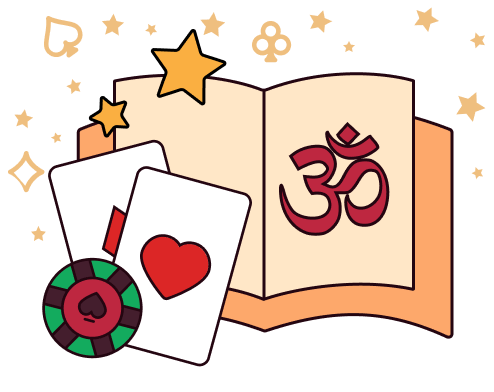
The Indian gambling system has come a long way; certain states allow gambling while others do not. Still, a few states allow punters in a land-based casino. Rummy and poker games can be played online. It's seen that the casino industry in the country has come a long way, but there are a few socio-economic concerns that still make gambling a 'lackluster activity.'
Use of harm to children and outrage among adults
Gambling activities leading to financial losses
Violent or inappropriate content without any concrete measures
No security to secure the users' money
Offshore gambling sites targeting Indian users
Online gambling activities started with humble beginnings, but the modernization and creeping of technology led to varied options for players. We must tell you that responsible gambling is still a concern for the Indian government. Of course, the legal authorities do not allow people to act like 'emotional fools.'
Legal Cases And Their Influence
Legal cases in India are rising related to the casino industry. These cases show how a few punters cannot escape gambling-related emotions. Few families reported how their hard-earned cash was used for gambling by their family members. Let us walk you through a few cases to give you a better glimpse.
RMD Chamarbaugwala v/s Union of India Case 1957
In this case, the Supreme Court stated the game of chance and the game of skill. The upshot was that every gambling game involves certain skills, including chances. However, it was stated by the court that the games that include skill would not be considered gambling. The definition of skill games provided was that the games that involve a certain level of skill for achieving success are not rated as gambling.
There is always an element of chance where the game is 'preponderantly' the game of skill, then, it would never remain as the game of skill only. So, the ruling upheld that the games of skill are not part of gambling and will not be prohibited.
State of Andhra Pradesh v/s K. Satyanarayana, 1967
This case involves differentiating rummy from the 'three card game' and recognizing the game as the 'game of skill.' It is not defined as a game of chance, irrespective of the format, stakes, and venue involved. However, a few state enactments still exist that rule over India's Gambling Act 1867. Moreover, the Assam Game and Betting Act of 1970, Telangana State Gaming (Amendment) Ordinance, Orissa Prevention of Gambling Act 1955, and the High Court Judgement of Gujarat in 2017 refute that casino games with the cash stakes do not make the exception for the rounds of ability.
After this verdict, the punters from Gujarat, Odisha, Assam, Telangana, and Sikkim are prohibited from playing.
Dr. K.R. Lakshmanan v/s State of Tamil Nadu, 1996
The reason why horse betting is not prohibited, and other types of gambling activities are stated to be illegal was discussed in this landmark case. The Supreme Court stated that horse betting is based on skill, so it does not come under gambling. The 3-bench judge stated that the horse's winning in the horse race is not always dependent on chance. It depends on other factors like training received by the jockey and horse, the nature of the race, the pedigree provided to the horse, the health of the horse, and much more. This removes the illegality associated with horse racing and makes its position legal.
All these cases show the influence of casino gambling based on skill and why casino games based on skill are prohibited from getting banned. The ban on skill-based games in the states like Karnataka, Tamil Nadu, Andhra Pradesh, and the State of Telangana made the casino game ban highly unconstitutional.
The case of K.R. Lakshmanan v/s Tamil Nadu state upholds that skill games differ from the game of chance. So, the court stated that players have the right to exploit their skills and make earnings from those skills. The ban was cited as unconstitutional and was stated to allow the gambling of games with reasonable restrictions.

Present Standing On The Legal Proceedings Regarding Gambling
These landmark court cases showed how the game of skill is allowed and is not punishable too. However, the game of chance may still not be allowed in the casinos. The punters have to exercise certain restrictions, especially when playing casino games. It was to save their family from unseen losses. Moreover, the case of a Madhya Pradesh man who took out money from his grandfather's pension account made headlines. He played online satta or bet on the IPL. He was bailed on the pretext that he had to deposit 50% in the account of his grandfather.
It shows how lucrative gambling games can lure people. To curb this gambling menace, the court orders certain land-based and online casino restrictions. You have to take care when playing casino games. Do not become an 'emotional fool' as we stated earlier. You have to weigh the pros and cons of the casino gameplay. Fantasy Sports, Rummy, and Poker are exempted in certain states, along with Horse Race betting.
The only stand of the legal courts is that no one should suffer because of gambling. People must play them for entertainment and fun. It must be like exercising your skill and not putting all your money into gambling.
The Internet has become an essence of gambling because it is available like a free doughnut with every restaurant meal. Gamblers must check out the basic terms and conditions of the online casinos. They must also ensure that their state accepts a particular casino game under the legal aspects. You can always read the expert views and comments on the gambling situation in India before taking off casino gaming. It will help you to game carefully and legally.
The Latest News


Ana D.
•May 30, 2024
Lotteries and other forms of gambling have a colourful history in India. While lotteries are regulated under a central umbrella, how they are managed is subject to the discretion of state governments. However, the growing popularity of lotteries saw the Lotteries (Regulation) Act of 1998 and the Lotteries (Regulation) Rules 2010 introduced, which established detailed standards for the governments to follow.
Currently, lottery games are legal in 13 Indian states, though anyone of legal gambling age in India can buy international lottery tickets online. The ticket prices and prize pools of government lotteries in India vary depending on the lottery scheme and state in which it is regulated. Tickets for weekly draws begin at modest prices like ₹2 or ₹5 and increase for bumper draws and special schemes.


Akil Khan
•March 21, 2024
Whether you like it or not, luck plays a crucial role in gambling. And while many would argue that it’s an unreliable force, for many Indians, the ancient tradition of Vedic astrology offers a way to understand how luck works in the universe and how one could potentially manipulate it to work in one’s favour.
Vedic astrology (known as Jyotish in Sanskrit) is the practice of studying planetary positions, celestial influences, and karmic patterns to understand how these influence and shape human lives and destinies.
When it comes to gambling, some Indians look to Vedic astrology to boost their chances of success. By analysing astrological charts and horoscopes, and identifying cosmic connections, gamblers seek to find the most advantageous time to gamble, looking for lucky combinations of numbers, or even charms and rituals to help improve their chances.
Let’s look at this more closely:
Planetary configurations
"Muhurtha", an essential principle of Vedic astrology, indicates the opportune time to partake in certain activities based on planetary configurations. It also highlights when best to avoid certain activities. So, in the case of gambling, a player would wait for a favourable Muhurtha to maximise their chances of success.
Presence of the planets
Vedic astrology focuses on nine “grahas”, which are collectively referred to as the “navagrahas” (nava meaning nine). They include the sun (Surya), moon (Chandra), Mars (Mangala), Mercury (Budha), Jupiter (Brihaspati), Venus (Shukra), Saturn (Shani), Rahu (north node of the moon), and Ketu (south node of the moon). According to Vedic astrology, the planet Venus offers luxury and Jupiter provides immense wealth. A conjunction of Jupiter and Venus unafflicted with the moon is therefore said to bring good luck and prosperity.
Birth charts
Many Indians strongly believe in analysing their birth chart in every aspect of their life. This comes from Vedic astrology, which argues that the alignment of different celestial bodies at your birth can provide invaluable insights. In the case of betting, it could highlight a person’s gambling and risk-taking tendencies and subsequent strategies they could employ to maximise their chances of winning, translating into profits and success.
Astrology and numerology
Hindus love to rely on their favourite numbers, particularly when it comes to gambling, and generally prefer odd numbers over even. Seven and eight are considered auspicious numbers, representing success and prosperity. Many Hindus also use these numbers at the time of Diwali when, in some houses, gambling is a ritual. Another lucky sequence of numbers in Hinduism is 786, representing the Trinity of Brahma, Vishnu, and Shiva.


Akil Khan
•March 21, 2024
In casinos, we often hear phrases like good luck and good fortune. Not surprising, really, given how the majority of casino games are based primarily on chance, though some would claim that success is also down to mathematics and algorithms.
In any case, luck plays a crucial role in gambling, and many gamblers will have their own rituals they perform before games or even lucky charms they carry to improve their chances of winning.
Hinduism, one of the oldest practising religions in the world, believes in positive and negative energy, which could define your moves and outcomes. Furthermore, there are several ways one can channel these energies, whether through prayer or certain objects such as charms or symbols. We shall discuss these in more detail below.